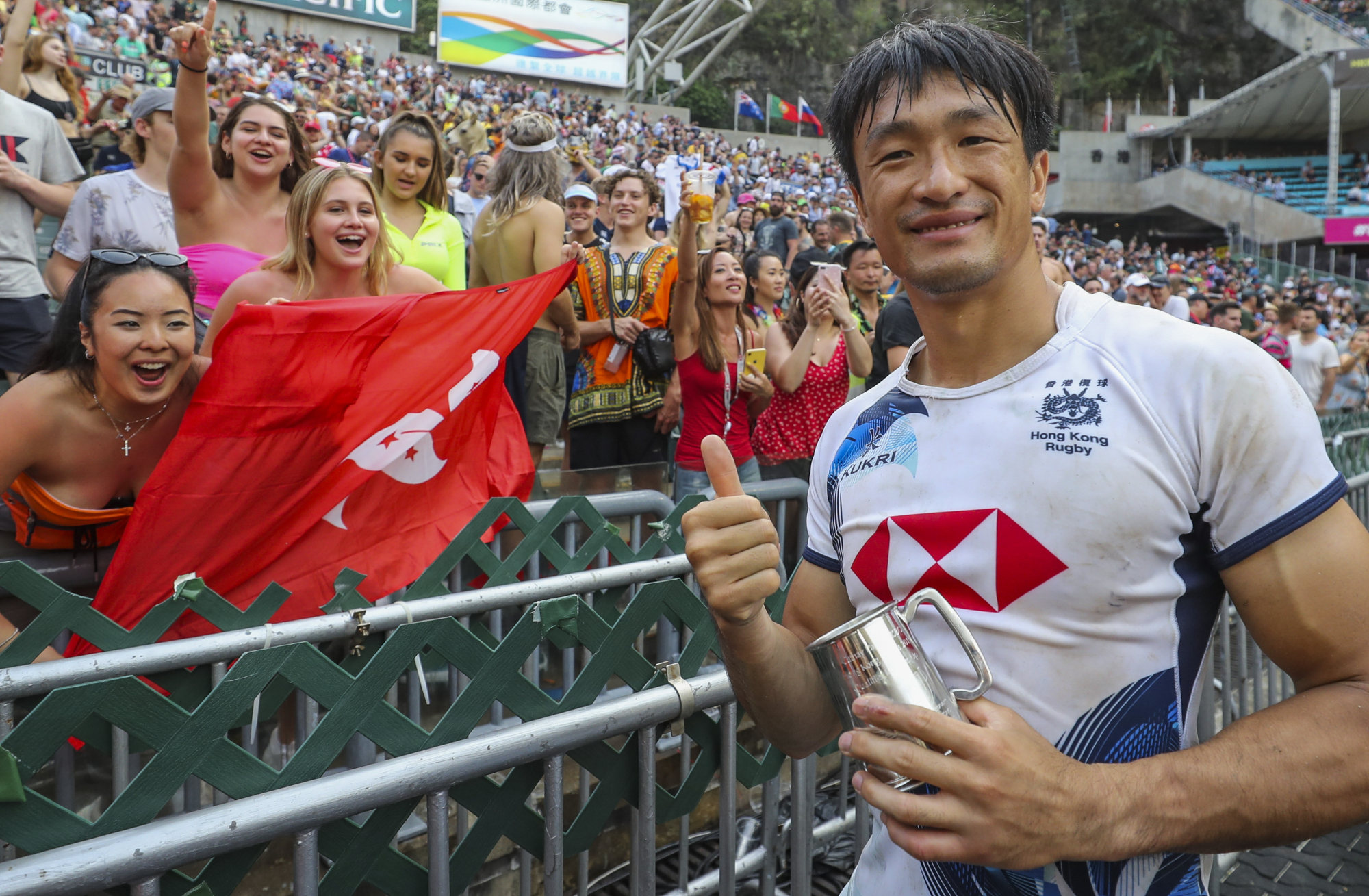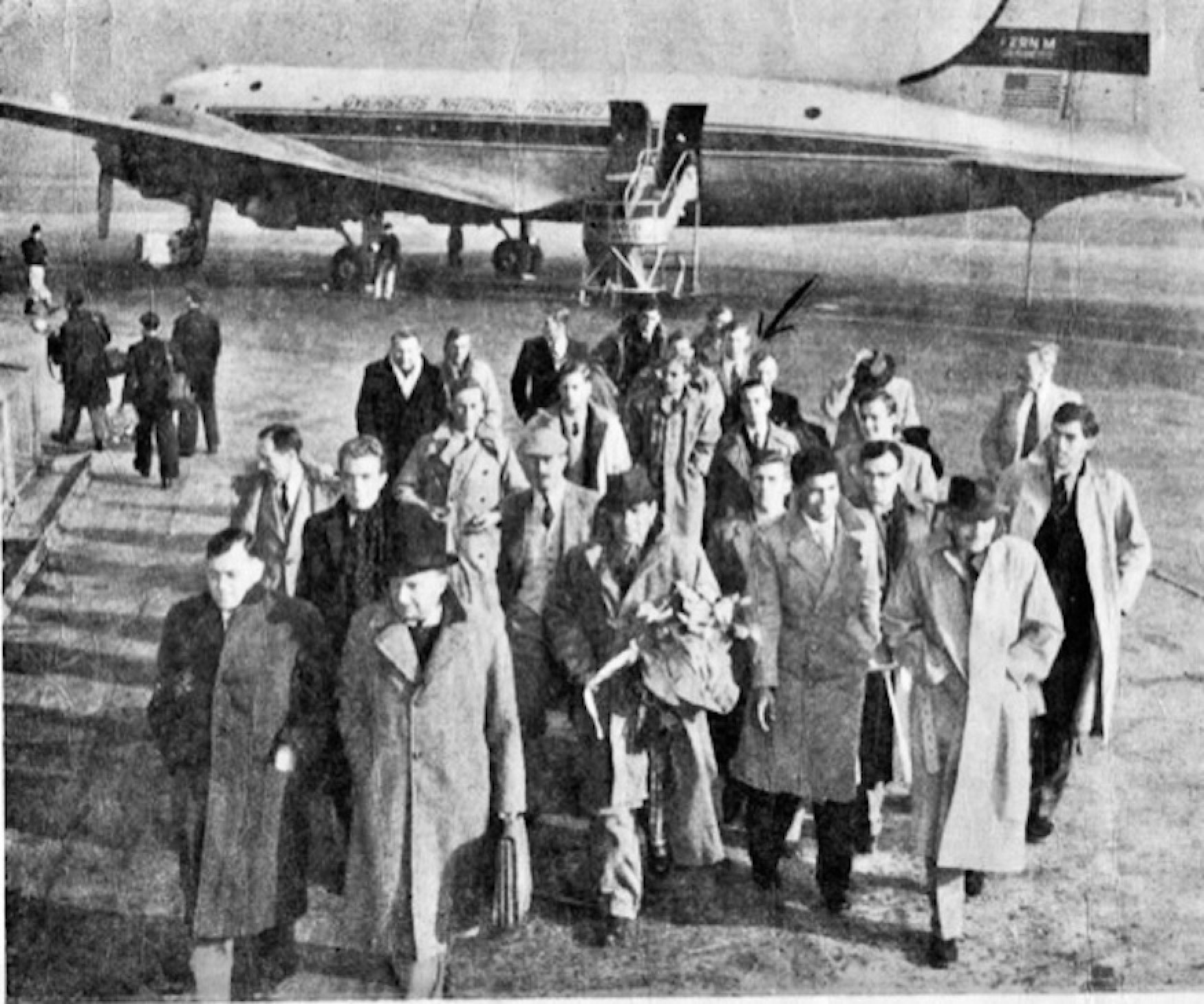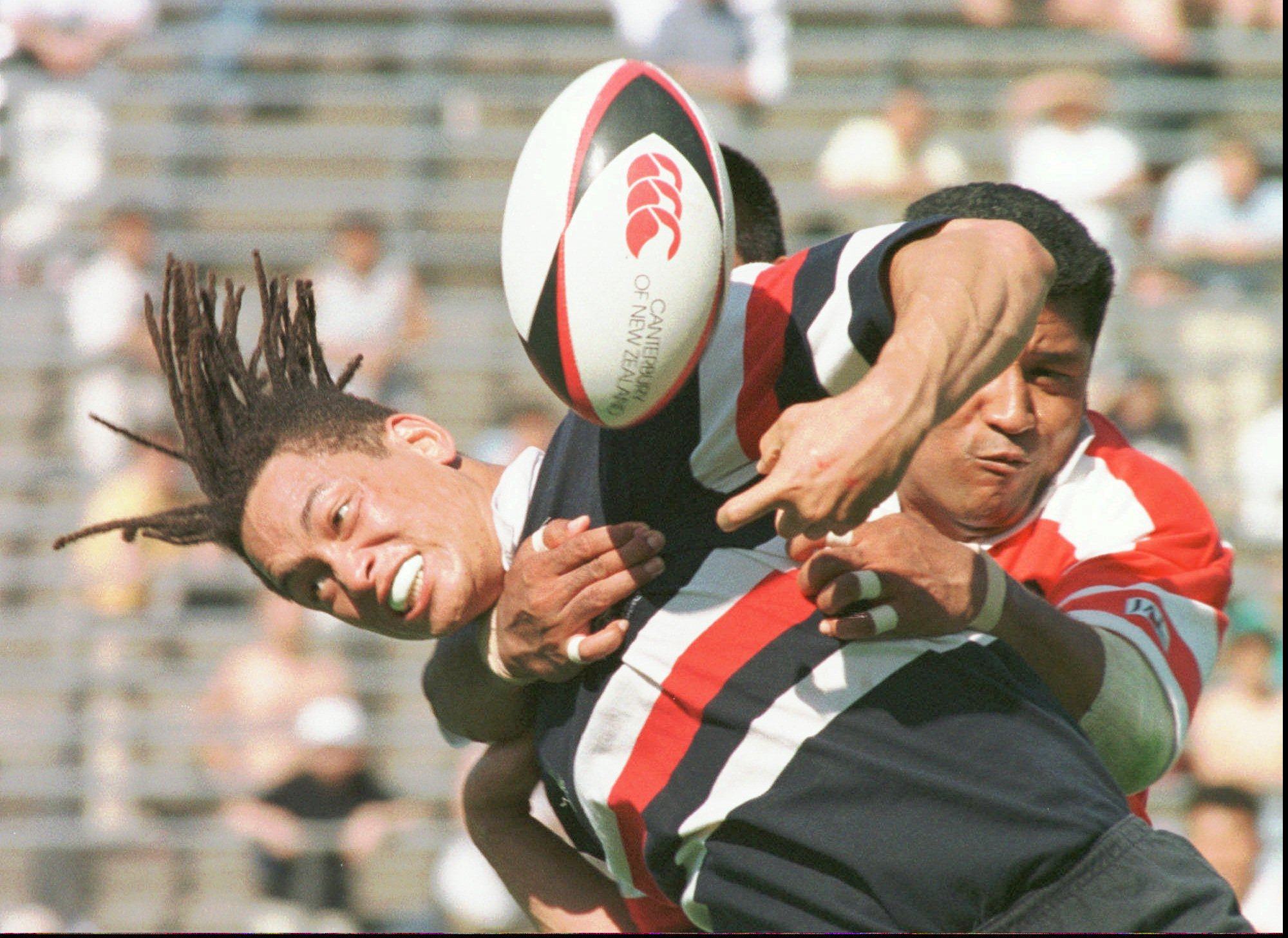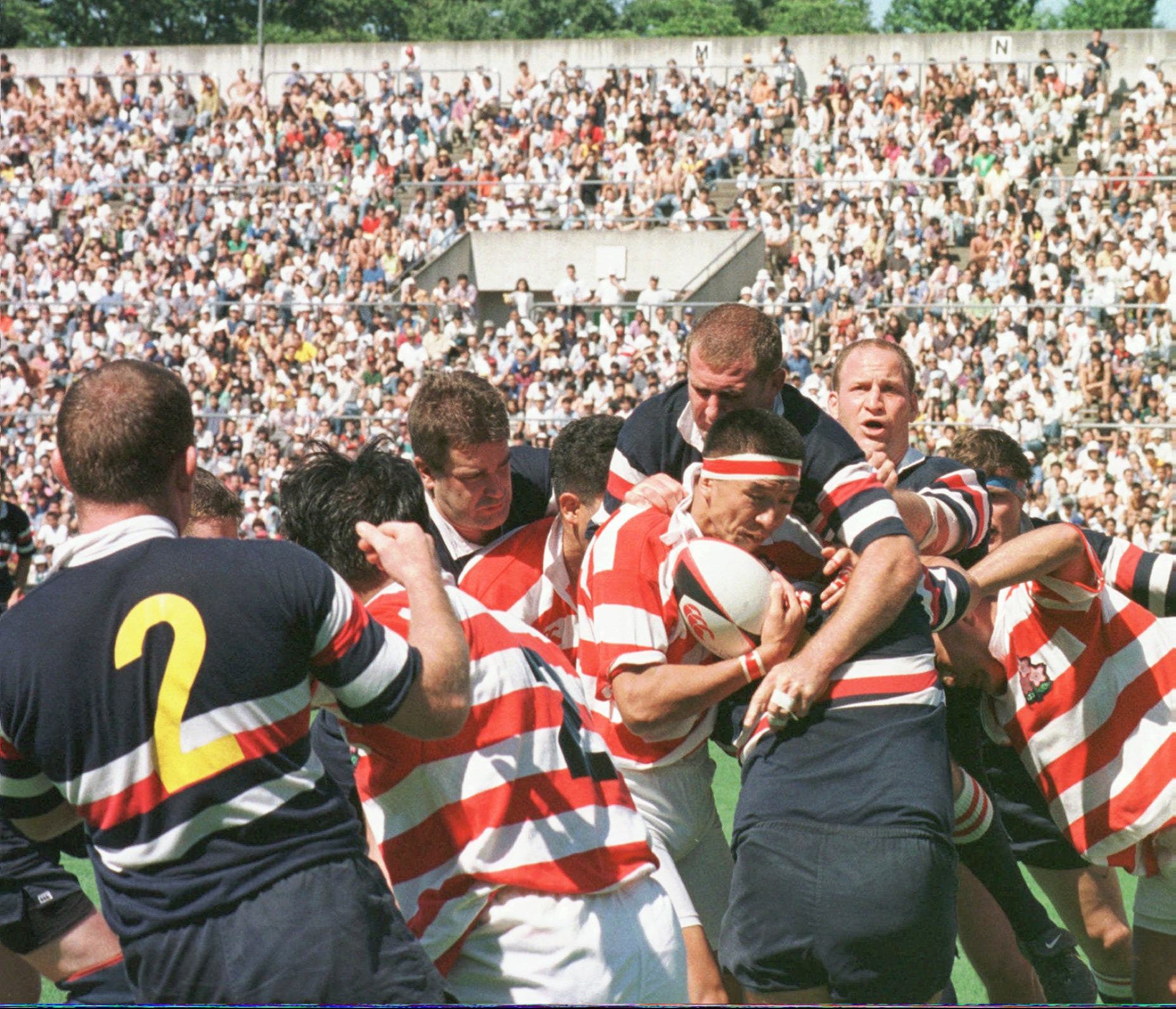
The ties that bind rugby in Hong Kong and Japan were formed 70 years ago, with tour that sparked enduring friendship
- Newly established Hong Kong Rugby Union sent a team to Japan for a four-match series in 1952, which would have a lasting effect
- ‘Japan is a role model for all of us in the region and they are very generous in sharing their knowledge and supporting us,’ current CEO Robbie McRobbie says
Seventy years ago, the newly established Hong Kong Rugby Union sent a team to Japan for a four-match series, the first time a foreign team had toured Japan since the end of World War II. The visitors acquitted themselves well, winning two of the matches and only being defeated by a team made up of foreign expatriates.
More importantly, the tour laid the foundations of Hong Kong rugby’s oldest and most enduring friendship.
Rugby has been played in Hong Kong for more than 150 years, with the Hong Kong Football Club set up in 1886 and hosting the same year its first rugby match, against a Garrison XV drawn from servicemen based in the British colony at the time.
Matches between the different arms of the military dominated the early years of the game in Hong Kong and, despite the interruption caused by the war, the game gradually caught on more widely.
The Hong Kong police fielded teams before a formal division was set up in 1975 with two new civilian clubs. A women’s league was created in 1992 and more Chinese players are trying their hand at the game – while the Hong Kong Sevens retains its reputation as the pinnacle of the format in the world.

Perhaps surprisingly, the first rugby match to be played in Japan, a short distance away across the East China Sea, was fully two decades earlier than the initial game in Hong Kong. The first contests took place between teams made up primarily of foreign residents of Japan’s treaty ports as early as 1866, making Japan the first Asia-Pacific nation to host matches, even before the sport arrived in Australia and New Zealand, nations synonymous with the sport.
A number of universities established clubs in 1899, while the first recorded international match was against a Canadian team in 1932, with an Australian university team touring in 1934 and followed two years later by a student squad from New Zealand.
According to Jamie Scott, vice-president of the HKRU, the primary reason the organisation was formally set up in 1952 was a question of finances, with the British Army Rugby Football Union then able to cover the costs of 11 players who were serving in the armed forces to travel to Japan.

There was also a degree of “bad feeling” over Japan being selected as the first overseas destination for the fledgling organisation, with four years of often brutal occupation and repression still fresh in many people’s minds.
“But Hong Kong rugby was losing both its long-standing rugby connections, with the ongoing Korean war making tours to Shanghai impossible and the Indochina conflict similarly ruling Saigon out as a destination,” Scott told the Post.
“In the circumstances, the HKRU reasoned that they had to start somewhere.”
The All Hong Kong Team – made up of 24 players and captained by Hugh Moss Gerald Forsgate, who would later become director of the Hong Kong and Kowloon Wharf and Godown Co Ltd and chair of both the city’s Urban Council and the Kowloon-Canton Railway Corp – arrived in Tokyo aboard an Overseas National Airways DC-6 in January 1952.
The first match was on January 25 against Meiji University, whom they defeated 14-0, before a 6-6 draw two days later against an All-Kanto team, drawn from universities across the Tokyo region. The following day, a probably weary Hong Kong team lost 13-5 to an All-Japan Foreigners squad before concluding the tour with a narrow 12-11 victory over a combined Kansai and Kyushu University students’ team.

Details on the three university matches are scant, but more is known about the match against foreign residents of Japan at the Yokohama Country & Athletics Club thanks to a surviving programme preserved by Mike Galbraith, a sports historian and founder of The Galbraith Press.
In an article published in 2019, Galbraith said the tour by the Hong Kong team “seems to have been arranged as phase one of a plan by the JRFU [Japan Rugby Football Union] to rapidly expose the best Japanese rugby players to as many foreign teams as possible before the high-profile tour by Oxford University in the autumn of the same year.”
Since 1930, Japan had been trying to convince the International Rugby Board and the England Rugby Football Union to send a team to Japan to raise the profile of the game, but without success, Galbraith said. It was not until 1952 that Oxford University accepted the invitation, but there was concern in Japan that its university players were still a long way behind their counterparts overseas, with the Hong Kong tour designed to expose them to a higher calibre of player.
A report on the match in the YC&AC in-house magazine said the contest was a “hard give-and-take game”, with the Hong Kong team a “strong, hard-running side”.
Hong Kong had a height and weight advantage over the home team, with the “excellent hooker” D Hopkins getting the ball in almost every tight scrum. The All-Japan Foreigners withstood the pressure, however, and hit Hong Kong with a breakaway try that was converted before half-time. Hong Kong – who had also played the previous day – tired in the second half and despite scoring a try, were ultimately unable to claw their way back into the game.

The report concludes that players from both sides enjoyed “free drinks” at the Marunouchi, almost certainly the Marunouchi Hotel, before progressing to the Showboat, a well-known nightspot in the Shimbashi district that employed upwards of 1,000 hostesses.
“The Japanese rugby community was very happy that the Hong Kong national team was coming to Japan for the first time since the end of the war, while the visit of Oxford University in the autumn also contributed to the development of the sport in Japan,” Eisuke Tomioka, the head archivist at the JRFU, said.
“It is said that the atmosphere in Japan was one of desire to develop Japanese rugby,” he added. “Rugby had been very popular in Japan before the war and it was said that the Hong Kong and Oxford tours greatly encouraged Japanese society, which had been greatly subdued after Japan’s defeat in the war.”
The Hong Kong national team returned to Japan in September 1965, while the prestigious Acorn Club toured Hong Kong the following spring. Ties were further cemented in 1968, through the establishment by Thailand, Japan and Hong Kong of the Asian Rugby Football Union and a biannual Asia Rugby Football Tournament, which ran for 37 years until 2007, with Hong Kong playing Japan on 18 occasions.
Regular women’s rugby fixtures between Hong Kong and Japan began with a pioneering Hong Kong Women’s Rugby team touring Japan in 1998.

Robbie McRobbie, CEO of the HKRU, and chairman Paddy Donovan travelled to Tokyo in January 2020 as guests of the JRFU to watch the varsity rugby final at the newly completed Olympic Stadium in Tokyo and then the opening match on the first day of Japan’s Top League.
“The visit was a reflection of the close relationship our two unions enjoy, and also our shared interest in the development of rugby in Asia,” McRobbie said. “Japan is a role model for all of us in the region and they are very generous in sharing their knowledge and supporting the rest of us.
“We are extremely proud of their successful hosting of the 2019 Rugby World Cup and the continued success of their men’s and women’s teams on the international stage.
“If travel and quarantine restrictions allow, it would be wonderful to be able to mark our 70th anniversary with a game against our friends from Japan. Fingers crossed.”

